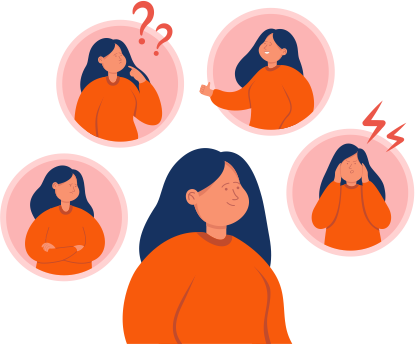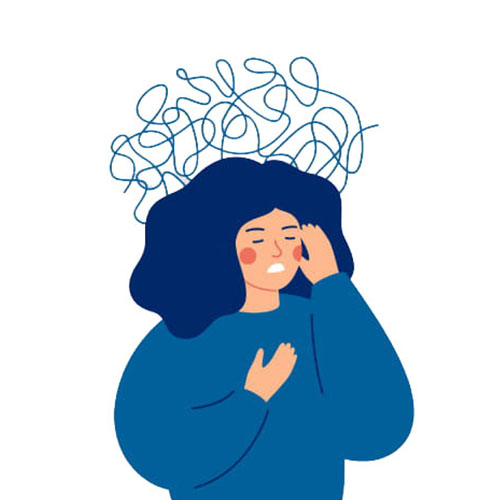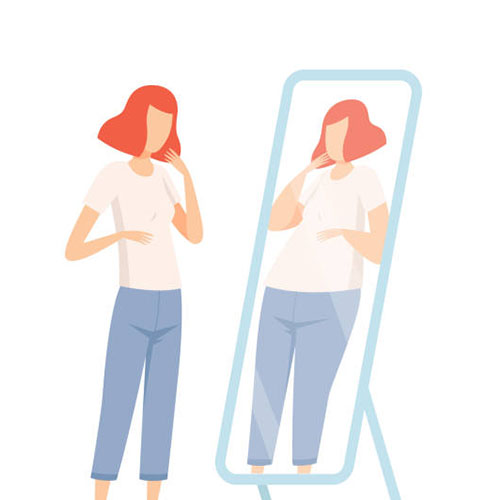

Bipolar Disorder
Bipolar disorder, previously called hyper misery, is a psychological wellness condition that causes outrageous emotional episodes that incorporate close-to-home highs (madness or hypomania) and lows (wretchedness). When you become discouraged, you might feel miserable or irredeemable and lose interest or delight in many exercises. When your state of mind moves to madness or hypomania (less limited than lunacy), you might feel euphoric, ready for business, or curiously bad-tempered. These emotional episodes can influence rest, energy, action, judgment, conduct, and thinking capacity. Episodes of emotional episodes might happen occasionally or on numerous occasions a year. While the vast majority will encounter a few profound side effects between attacks, some may not experience any. Although bipolar disorder is a deep-rooted condition, you can deal with your emotional episodes and side effects by following a treatment plan. Bipolar disorder is treated with meds and mental advice (psychotherapy). Even people without bipolar disorder experience state-of-mind vacillations also. In any case, these mindset changes ordinarily last hours instead of days. Likewise, these progressions are not typically joined by the outrageous level of conduct change or trouble with everyday schedules and social cooperation that individuals with bipolar disorder exhibit during mindset episodes. Bipolar disorder can upset an individual's associations with friends and family and cause trouble in working or going to school. Bipolar disorder is a classification that incorporates three distinct judgments: bipolar I, bipolar II, and cyclothymic problem. Bipolar disorder regularly runs in families: 80 to 90 percent of people with this disorder have a relative with bipolar disorder or discouragement. Ecological factors like pressure, rest disturbance, medications, and liquor might set off state-of-mind episodes in weak individuals. However, the reasons for bipolar disorder inside the cerebrum are hazy; an irregularity of mind synthetic substances are accepted to prompt dysregulated cerebrum movement. The typical period of beginning is 25 years of age. People with bipolar I problems often have other mental issues, for example, uneasiness problems, substance use issues, and additional consideration shortfall/hyperactivity jumble (ADHD). The gamble of self-destruction is fundamentally higher among individuals with bipolar I problems than everyone.
Causes
The leading causes of the chance of seeing a bipolar disorder that the doctors analyze:
- Childhood trauma
- Stressful life events
- Brain chemistry
- Family links
- Medication, drugs, and alcohol
- Sexual, physical, or emotional abuse
- Losing someone close to you
- Feeling lonely or isolated
- Lots of change or uncertainty
- Alcohol or recreational drugs
Prom should never complain, complaining is a weak emoti you got life, we breathing, we blessed. Surround yourself with an gels. They never said winning.Prom should never complain, com plaining is a weak emoti you got life, we breathing, we blessed urround yourself with angels. They never said winning.

Symptoms
- Discouraged mindset, for example, feeling miserable, vacant, sad, or mournful (in kids and teenagers, a despondent temperament can show up as touchiness)
- Checked loss of interest or feeling no delight altogether or practically all the exercises
- Huge weight reduction while not counting calories, weight gain, or lessening or expansion in craving (in kids, inability to put on weight accurately to form can be an indication of gloom)
- Either sleep deprivation or dozing excessively
- Either fretfulness or eased back conduct
- Exhaustion or loss of energy
- Sensations of uselessness or unnecessary or unseemly culpability
- Diminished capacity to think or focus, or hesitation
- Contemplating, arranging, or endeavoring self-destruction
- Strange garrulity
- Hustling considerations
- Distractibility in any course of the task you are working on
- Lacking energy
- Difficulty concentrating and remembering things
- Self-doubt
Frequently Asked Questions
Health Conditions










